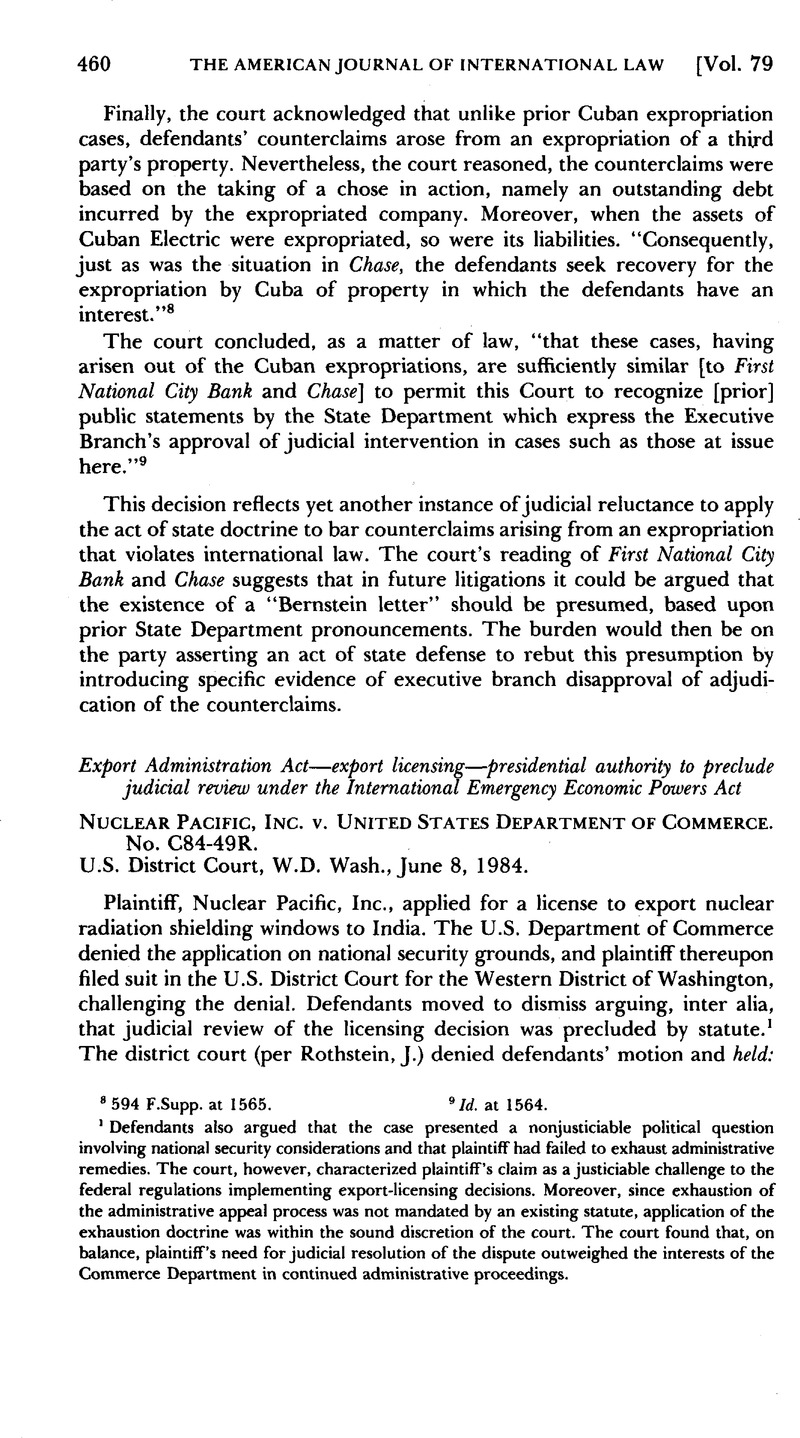No CrossRef data available.
Published online by Cambridge University Press: 27 February 2017

1 Defendants also argued that the case presented a nonjusticiable political question involving national security considerations and that plaintiff had failed to exhaust administrative remedies. The court, however, characterized plaintiff’s claim as a justiciable challenge to the federal regulations implementing export-licensing decisions. Moreover, since exhaustion of the administrative appeal process was not mandated by an existing statute, application of the exhaustion doctrine was within the sound discretion of the court. The court found that, on balance, plaintiff’s need for judicial resolution of the dispute outweighed the interests of the Commerce Department in continued administrative proceedings.
2 On Oct. 23, 1984, the Government filed a notice of appeal.
3 The EAA expired initially on Sept. 30, 1983, but was extended by Congress through joint resolutions until Mar. 30, 1984.
4 Slip op. at 7.
5 In this respect, the court relied on various cases that considered the legality of a different executive order—No. 12294—which suspended claims pending in U.S. courts against the Iranian Government. See, e.g., Dames & Moore v. Regan, 453 U.S. 654 (1981); Electronic Data Systems Corp. Iran v. Social Sec. Org. of Iran, 508 F.Supp. 1350 (N.D. Tex.), aff’d in part and vacated in part, 651 F.2d 1007 (5th Cir. 1981) (executive orders lacking congressional approval or authority cannot interfere with the exercise of jurisdiction by federal courts).
6 See Abbott Laboratories v. Gardner, 387 U.S. 136, 140-41 (1967).